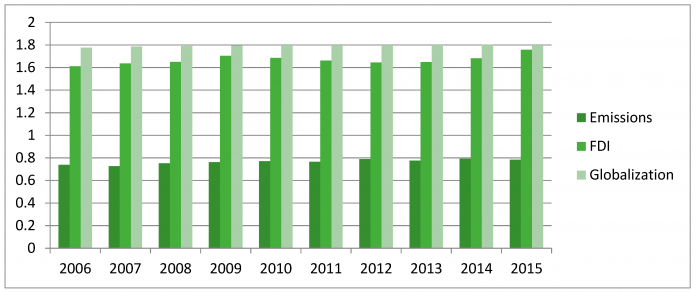In an interconnected world, the forces of globalization have significantly reshaped financial landscapes, influencing markets and economies on a global scale. In this article, we will explore the multifaceted impacts of globalization on the financial frontier, from market dynamics to economic policies.
The Evolution of Globalization in Finance
Globalization in finance refers to the increasing interconnectedness of financial markets and institutions worldwide. This phenomenon has evolved over the years, driven by advancements in technology, communication, and international trade.
1. Interconnected Markets
One of the key aspects of financial globalization is the integration of markets. Stock exchanges, currency markets, and commodity markets are now more interconnected than ever, allowing for seamless cross-border transactions and investments.
2. Cross-Border Capital Flows
Globalization has facilitated the movement of capital across borders. Investors can diversify their portfolios by accessing assets and investment opportunities in different countries, contributing to increased liquidity and capital mobility.
Impact on Financial Markets
The globalization of finance has brought about significant changes in the way financial markets operate and respond to global events.
1. Increased Market Efficiency
Globalization has led to increased market efficiency as information is rapidly disseminated across borders. Investors can react more swiftly to news and events, contributing to more accurate pricing of financial instruments.
2. Market Volatility and Risk
While globalization enhances market efficiency, it also introduces new challenges. Increased interconnectedness can lead to contagion, where financial disturbances in one part of the world can quickly spread to others, causing market volatility and heightened systemic risk.
Globalization’s Influence on Economies
Beyond financial markets, globalization profoundly impacts the economic policies and strategies adopted by nations.
1. Trade and Economic Growth
Globalization fosters international trade, enabling countries to access larger markets and promote economic growth. However, it also poses challenges, such as competition and potential trade imbalances that nations must navigate.
2. Monetary Policy Challenges
Central banks face new challenges in a globalized world. Coordinating monetary policies becomes complex, and the impact of decisions made by one central bank can have far-reaching consequences across borders.
Strategies for Navigating the Global Financial Landscape
As individuals and businesses navigate the complexities of a globalized financial frontier, certain strategies can help mitigate risks and leverage opportunities.
1. Diversification and Risk Management
Investors should embrace diversification across asset classes and geographical regions to manage risks associated with global market fluctuations. Robust risk management strategies are essential for preserving capital in dynamic markets.
2. Keeping Abreast of Regulatory Changes
Globalization often prompts changes in regulatory environments. Staying informed about evolving regulations and compliance requirements is crucial for businesses operating in international markets.
Challenges and Considerations
While globalization offers numerous benefits, it also presents challenges that require careful consideration.
1. Political and Economic Stability
Political and economic instability in one region can have cascading effects globally. Understanding geopolitical risks and monitoring global economic indicators is vital for informed decision-making.
2. Ethical and Social Responsibilities
Globalization brings ethical considerations to the forefront. Companies and investors must navigate cultural differences and uphold social responsibilities as they operate on a global scale.
Conclusion
Globalization has irrevocably altered the financial frontier, introducing both opportunities and challenges. Understanding its impacts on markets, economies, and individual financial strategies is paramount for those looking to thrive in an interconnected and rapidly changing global financial landscape.

